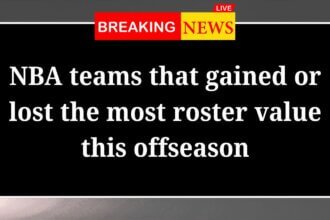Arsenal’s Title Drought: Martin Zubimendi Shares Insights on the North London Club’s Struggles
In an era where English football has seen unprecedented growth and competition, Arsenal’s prolonged title drought has become a focal point of discussion among fans and analysts alike. Real Sociedad midfielder Martin Zubimendi recently shared his thoughts on Arsenal’s internal dynamics and struggles in a candid interview. This insight comes as the Gunners, one of England’s most storied clubs, have not secured a Premier League title since their historic 2003-2004 ‘Invincibles’ season.
The Legacy of ‘The Invincibles’
Arsenal’s last Premier League triumph was a season that remains etched in football history. The 2003-2004 Arsenal team, managed by Arsène Wenger, went an entire league campaign unbeaten, an achievement that has not been replicated since. This team, featuring stars like Thierry Henry, Patrick Vieira, and Dennis Bergkamp, set a benchmark for excellence. However, the inability to replicate such success has been a source of frustration. The shadow of ‘The Invincibles’ looms large, serving as both an inspiration and a reminder of what has been lost.
The Competitive Landscape of the Premier League
The Premier League’s evolution over the past two decades has been marked by increased financial investments and a more level playing field. Clubs like Manchester City and Chelsea have received significant financial backing, allowing them to attract world-class talents. According to Deloitte’s Annual Review of Football Finance, the Premier League remains the wealthiest football league globally, with clubs generating record revenues. This financial muscle has intensified competition, making it challenging for traditionally top clubs like Arsenal to remain consistently at the top without similar financial injections.
Managerial Changes and Instability
Post-Wenger, Arsenal has grappled with managerial instability, a factor that has contributed to their struggles. Since Wenger left in 2018, the club has cycled through several managers, each with distinct philosophies and systems. Such frequent changes can lead to a lack of continuity, disrupting team cohesion and long-term strategic planning. Mikel Arteta, who took over in December 2019, has shown promise, steering the team towards a blend of youth and experience. However, the inconsistency in performances indicates that the club is still finding its footing.
Squad Development and Youth Integration
Arsenal’s academy has historically been a source of pride, producing players who have made significant contributions to the first team. Martin Zubimendi noted the importance of developing young talent, emphasizing patience and the right environment as key to nurturing potential stars. Players like Bukayo Saka and Emile Smith Rowe are testament to the academy’s success, having become integral parts of the squad. However, the challenge remains in balancing youth integration with the need for experienced players who can guide the team through high-pressure situations.
Financial Constraints and Transfer Market Strategy
Financial constraints have been a recurring theme in Arsenal’s transfer strategies. Unlike some of their rivals, Arsenal operates under a more conservative financial model, which affects their ability to make marquee signings. While the club has made strategic investments in recent transfer windows, such as acquiring Gabriel Jesus and Thomas Partey, their spending power pales in comparison to that of clubs like Manchester City and Chelsea. This financial prudence, while ensuring long-term sustainability, limits Arsenal’s ability to compete for top-tier talent consistently.
The Role of Club Culture and Mental Resilience
Zubimendi’s insights into Arsenal’s struggles highlight the significance of club culture and mental resilience. Arsenal’s history is steeped in success, which brings inherent pressure to maintain a winning mentality. However, the weight of expectations can impact player performance and morale. Building a squad capable of handling setbacks and maintaining focus is crucial for any team aiming for the title. The psychological aspect of competition is as important as physical readiness, and Arsenal’s ability to cultivate mental resilience will be key to overcoming their title drought.
The Path Forward for Arsenal
Despite the challenges, there is optimism surrounding Arsenal’s future. The club’s commitment to youth development, combined with strategic investments, provides a solid foundation for potential success. Under Mikel Arteta’s leadership, the team is gradually building a style of play characterized by attacking flair and defensive solidity. If Arsenal can maintain consistency, integrate their youth prospects effectively, and strengthen their squad strategically, they may once again compete for the Premier League title.
FAQ
Q: When was the last time Arsenal won the Premier League?
A: Arsenal last won the Premier League in the 2003-2004 season, famously going unbeaten throughout the campaign.
Q: What are some reasons for Arsenal’s title drought?
A: Key reasons include increased competition in the Premier League, managerial instability, financial constraints, and challenges in squad development.
Q: Who is the current manager of Arsenal?
A: Mikel Arteta is the current manager of Arsenal, appointed in December 2019.
Q: How has Arsenal’s youth academy contributed to the team?
A: Arsenal’s youth academy has produced several talented players, including Bukayo Saka and Emile Smith Rowe, who have become integral parts of the first team.







